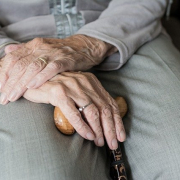Children’s Social Care – A Broken Market
Sometimes Bad Buying stories are amusing, or we can learn from events without feeling too emotionally involved. But reports last week about the procurement and management of children’s care services brought just rage and sadness.
These are children who don’t have parents to look after them, or have been placed in care. Many have behavioural issues, or addiction problems. So keeping them safe and providing an environment where they can learn and thrive is far from easy, and perhaps that is why public sector bodies (local councils) have over the years increasingly outsourced provision of residential facilities and care. The work goes to private sector firms, ranging from very small (individual foster parents at the extreme) to larger firms, including those funded or owned by private equity.
The Times reported problems both with the performance of some firms plus what looks like a rip-off in terms of the prices charged. The average cost per week is now £4,130 per child, and there is evidence that through the pandemic, new “get rich quick” firms have come into the scene, providing poor care and facilities but taking advantage of the lack of physical inspections by the regulators.
The Times highlighted cases reported by Ofsted (the regulator):
- Children were able to steal knives from one home and take them to school.
- Staff dropped a young person off at the home of a drug dealer despite being warned by police to avoid the area; at another run by the same company a child was discovered riding a bike on a motorway hard shoulder.
- A young person at a third home was found weaving through traffic and high on drugs. On another occasion inadequately trained staff locked themselves in a car when a resident became violent. One of the three people who set up the home was a scaffolder prosecuted for having an eight-inch knife behind the sun visor of his van.
A government review of children’s social care services is underway, and an interim report was also issued last week. The review is being chaired by Josh MacAlister, the founder of Frontline, a charity that has developed a scheme for fast-tracking bright graduates into children’s social work – similar to the Teach First scheme in the education world. I have worked with Frontline a number of times, and MacAlister is one of the most impressive people I have ever met. If anyone can address these seemingly intractable issues, it is him.
However, I did smile at his comment last week (made in a conference speech) when he appealed for large firms to moderate their prices and margins.
“I would implore those of you who are owners of private children’s homes, particularly large groups, to act with responsibility to bring down costs and reduce profit-making and to be responsive to the needs of children. It is better that plans to make this happen are started now”.
Asking firms with private equity behind them to reduce profits is like asking a spider to stop making webs or a fish to stop swimming. Josh, it’s what they do. I think we can confidently predict that his appeal will have no effect at all.
In his speech, MacAlister also cited figures published in 2020 by the National Centre for Excellence in Residential Child Care (NCERCC) and Revolution Consulting, which identified a 40% rise in independent children’s home prices from 2013-19. The 20 biggest independent children’s social care providers were making combined annual profits of £265m, at a margin of 17.2%. However, the private sector argues it provides care that is as good as that provided by councils directly, at a lower cost.
Coming back to Bad Buying though, this strikes me as both market failure and a failure of procurement strategy. When we look at which services can most sensibly be outsourced, we should consider factors such as:
- Are the services strategically critical for our organisation?
- Is there a healthy, dynamic market out there to buy from, open to new entrants?
- Could we move our business between suppliers or back in-house if we needed too?
- Will there be a reasonable power balance between us and our suppliers, enabling us to exert some negotiation leverage?
If we carried out this analysis on these services, I’d argue that this is basically not a suitable spend category to outsource. It is very sensitive, it is difficult to switch suppliers, with limited supply in some parts of the country. Once a child is being cared for, the provider has the upper hand in negotiations, as changing suppliers is difficult.
I don’t know whether there has ever been a national procurement strategy here, or whether every council has developed its own. I suspect the current situation has just evolved, and now we have the taxpayer spending £500,000 a year per child in some cases, and not even being sure the service is up to scratch.
There is also a market study into children’s social care provision underway, led by the Competition and Markets Authority (CMA). Maybe that – as well as the MacAlister review – will lead to a new approach to the procurement issues around children’s care. This really does need some serious thought and a national strategy. That doesn’t necessarily mean big national contracts, I would add, but it does need considering strategically, rather than dozens of individual councils trying to do their best individually.










Leave a Reply
Want to join the discussion?Feel free to contribute!